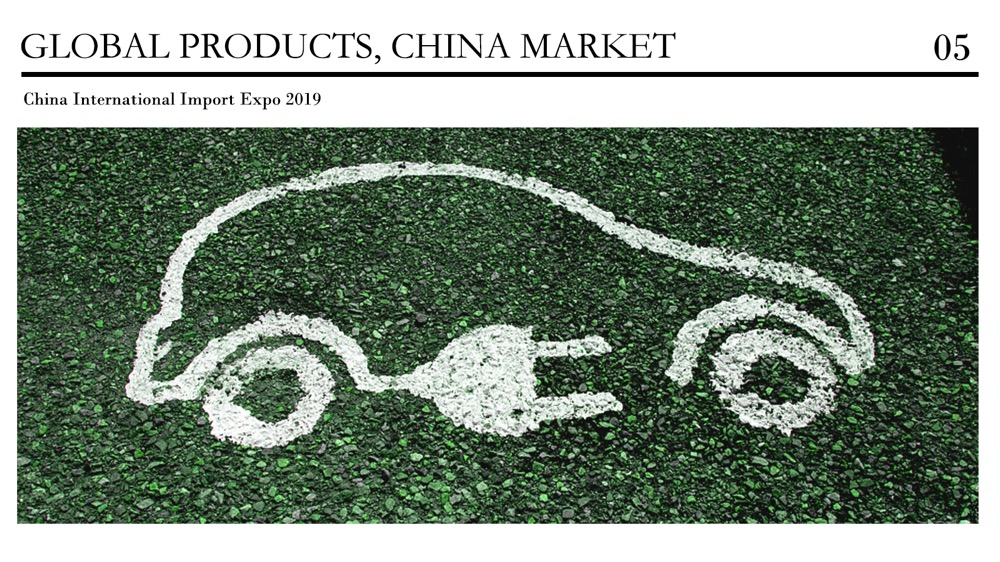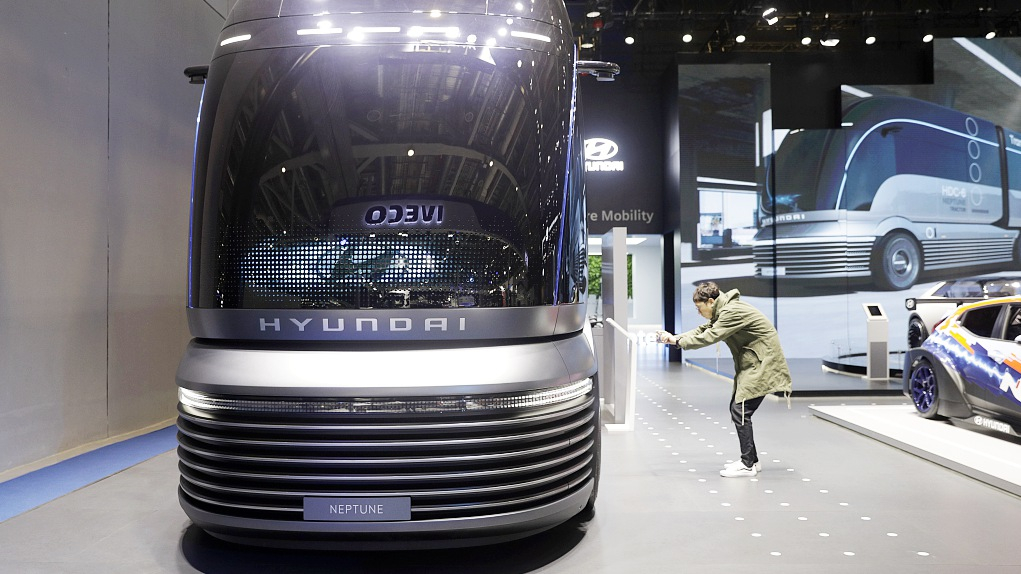03:02

It's the time of year when trees start losing their green, but it's the opposite for the vehicles rolling along beneath them. Electric cars now make up ten percent of Norway's auto market, account for millions of vehicles in China, and is showing faster than expected growth from the U.S. to South Korea.
But the limited range and cargo capacity of battery vehicles have led many to believe hydrogen fuel cells are the next big thing.
With more than two million electric cars and almost 344,000 electric buses, China is the world's largest producer and consumer of battery powered vehicles. South Korea's auto giant Hyundai, which is attending the second China International Import Expo (CIIE), is delivering the message that hydrogen is key to a green auto future, and not just for cars.
Per kilogram, a fuel cell delivers much more power than a battery for a vehicle, whether it is a car, a bus or even a ship, and with a much longer range. Hyundai released the world's first commercial electric vehicle driven by a hydrogen fuel cell in 2017 and now believes the technology is the answer for green auto.

An attendee photographs the Hyundai's concept truck at the China International Import Expo (CIIE) in Shanghai, China, November 5, 2019. /VCG Photo
An attendee photographs the Hyundai's concept truck at the China International Import Expo (CIIE) in Shanghai, China, November 5, 2019. /VCG Photo
A hydrogen fuel cell sounds simple enough. The problem is that hydrogen is energy-consuming to make, and is difficult to store or transport. That's why there is little existing infrastructure.
Suh Kyungwon from Hyundai Fuel Cell Test Team, says that government support is definitely important, particularly at the initial stage.
One of the big advantages of fuel cell vehicles is refueling time — around five minutes compared to sometimes hours for battery-powered vehicles. Suh says that electric vehicles will play a bigger role in terms of solving the environment issues.
"In the future we need to focus on producing green hydrogen rather than grey hydrogen with the current technologies," Suh forecasted.